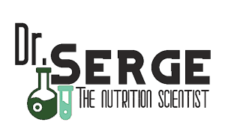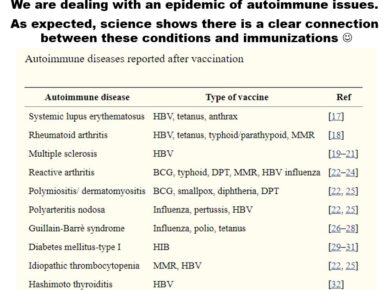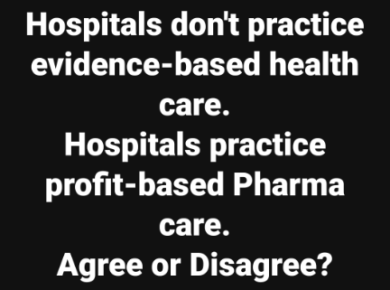A couple of weeks ago, I posted a blog on folic acid, and I demonstrated that folic acid is NOT the enemy at all.
The issues that people encountered with folic acid is that, as I demonstrated in that blog and my videos, the MTHFR pathway is not working properly and folic acid gets stuck in this pathway, leading to issues.
As I demonstrated, like other people, the key is vitamin B2. Most likely you are deficient in it, that is why folic acid is not your friend.
You can look at the science I provided at these links:
Also, I wanted to clarify something.
Yes, today, folic acid is synthetic, man-made. But it does exist in our foods! Back in the 40s, researchers would extract folic acid from the liver and greens, like spinach.
Ironically, methyl-folate that people take because of their MTHFR mutations is also synthetic!
So, when people tell me that folic acid is bad because it is synthetic does not make sense, especially when they recommend and believe that methyl folate is better.
Below is more information on this point: folic acid is not necessarily bad IF and ONLY IF you make sure to handle nutritional deficiencies like B2.
Dr. Chris Materjohn has this to say:
Question: Does folic acid act differently in the body than
natural folate? | Masterjohn Q&A Files #68
They don’t really. Everything that is said bad about folic acid is sort of true
to an extent but has been completely exaggerated in some circles. What happens
is you have an enzyme called dihydrofolate reductase, or DHFR. Its purpose is
not to metabolize synthetic folic acid obviously because that folic acid
molecule doesn’t exist in the food supply. Its normal purpose is that every
time that you use folate to participate in processes outside of methylation,
such as DNA synthesis, you wind up producing dihydrofolate as a byproduct. DHFR
recycles that and turns it into tetrahydrofolate, or THF. Tetrahydrofolate is
what has the methyl group added to make methylfolate.
The question is, does that synthetic folic acid, we call that unmetabolized folic acid, does that cause harm? There are scientific hypotheses that it might, and it might, but there’s no conclusive evidence of that. That’s one side of the argument against synthetic folic acid. The other side of the argument is now that you are giving the DHFR enzyme more work, that means that might be detracting from the work that it has in recycling dihydrofolate that came out of the DNA synthesis reactions to make tetrahydrofolate.
Interestingly, I got an email this morning from him. This is what he said about the MTHFR scapegoat:
“Question: A rant on why many people use “MTHFR” to slap a label on their health problems.
I put MTHFR in quotes because I meant it the way that people mean when they say, “I have MTHFR.” Everyone has MTHFR. What people mean by that is they have these MTHFR polymorphisms. What I meant by that title is that there’s a very compelling—It’s not totally airtight. It’s not completely proven. There’s a very compelling argument that the low activity of the C677T polymorphism in MTHFR is exclusively a result of mediocre riboflavin concentrations. That’s what I meant by just your MTHFR in quotes means the polymorphism, the result of the polymorphism. Just riboflavin means that the enzyme activity is only lower as a result of that polymorphism because of the mediocre riboflavin concentrations.
To them, MTHFR doesn’t mean the rate of the MTHFR enzyme. It’s a general label for all their health problems that they put Band-Aid solutions on like these tedious distinctions between these different forms of B vitamins and stuff like that that in a healthy well-balanced system don’t matter.
If people are hypersensitive to little distinctions in the type of B vitamins they’re taking like this, their problem is not just MTHFR. Their problem might be related to methylation. They probably have mineral deficiencies, or other genetic polymorphisms, or other health problems, thyroid-adrenal stuff that are causing that. The reason that MTHFR isn’t simply about riboflavin for those people versus the well-controlled studies of showing that riboflavin supplementation specifically lowers homocysteine 40%, specifically in people with MTHFR C677T homozygous, specifically with poor riboflavin status.
When you’re out there saying that overmethylators can’t tolerate methylcobalamin or they get terrible reactions to this, you’re slapping overmethylator label on someone whose problem is that they just don’t have a rational strategy for dealing with their MTHFR. Because no one is an overmethylator or an undermethylator, unless it’s a collection of symptoms of a poorly managed methylation system.”
In other words, the MTHFR status does not mean much when it comes to health issues.
Here’s a great paper that goes over some of the confusion in the world of folic acid and folate:
https://www.ncbi.nlm.nih.gov/pmc/articles/PMC3257747/
The authors state:
“Currently, there are no definitive studies that have found health effects from exposure to unmetabolized folic acid.”
“Since the implementation of mandatory folic acid fortification in the United States in 1998, both incidence and mortality of colorectal cancer have continued to decline .”
“There are currently insufficient data to justify such an assessment and that current evidence does not show an association between high folic acid intakes and cancer risk, but neither do they confidently exclude a risk.”
This is a great video from Dr. Steve Chaney. He has a Ph.D. in biochemistry, and he nicely confirms my point that folic acid is not toxic:
The company 23 and me, who tests for the MTHFR mutations has this today:
https://blog.23andme.com/health-traits/our-take-on-the-mthfr-gene/
“Our conclusion?
Despite lots of research – and lots of buzz – the existing scientific data doesn’t support the vast majority of claims that common MTHFR variants impact human health.”
This is another great article to read about the myths of folic acid and MHTFR mutations:
The author states:
“The truth is, MTHFR genetic variations are nothing new.
And though we don’t know exactly when the first case occurred, variations in this gene have been around for literally thousands of years, throughout the world. Yet, our MTHFR-variation ancestors continued to procreate and lead healthy lives without intervention.”
“B12, B6, and many other minerals are affected by MTHFR. Therefore, they must be ingested together and in a balanced way to achieve a desirable and lasting benefit. Not to mention that there are seven rate-limiting steps to result in folate — seven steps that prevent you from taking too much and causing yourself harm. Taking methylfolate bypasses these safe-guarding steps and dumps it all in at the end. That might not be a big deal with you’re taking a small amount, but I’ve seen crazy high amounts sold and prescribed, and those can flat-out cause you harm. Harm like cancers and other genetic changes.”
Another great article to read that confirms my statements that MTHFR mutations are no big deal if proper nutrition is provided:
http://www.genomemag.com/mthfr/
“Researchers around the world leapt to figure out how MTHFR might affect various diseases. Since then, more than 5,000 studies have tried to link MTHFR variants to a terrifying grab bag of more than 400 health problems: heart disease, stroke, autism, depression, pregnancy loss, cancer, cognitive problems, underdeveloped spinal cords and brains, and developmental disorders.
Most of these research papers found associations between many conditions and MTHFR — that is, people who had an MTHFR variant might also have one of these other problems. But almost none could show that the variants caused those conditions. Or, one study might hint that the variant caused a problem, and then a later paper would fail to support that causal link.”
Another great article to read about this scam:
https://www.seleneriverpress.com/the-mthfr-gene-snp-scam/
For example, the genetics department of the Cleveland Clinic, one of the most renowned research hospitals in the world, says:
“But there’s also a cheaper and more accurate way to test for whether MTHFR variations are causing disease. We simply check the levels of homocysteine in the blood. If levels are high, we can react appropriately. If homocysteine levels are normal—even if there is an MTHFR variation—then nothing needs to be done clinically.”
Simply stated, if you do not have high homocysteine levels, regardless of what this SNP tells you on a genetic test, you’re not suffering any consequences from it.
If you have a genetic inability to utilize folic acid, which by no means is assured by virtue of this SNP, this MTHFR gene, chances are you would have died a long time ago from anemia by lack of red blood cell creation. Or bone marrow failure due to lack of folic acid.”
Another great review on MTHFR:
https://www.acmg.net/docs/MTHFR_gim2012165a_Feb2013.pdf
“There is growing evidence that MTHFR polymorphism testing has minimal clinical utility.”
“The overall cancer risk does not appear to be changed. Patients should be counseled that it is important to provide their MTHFR genotype status to any physician who is considering starting them on types of chemotherapy whose activity depends on intracellular concentration of folate (e.g., methotrexate). In individuals who have a known thrombophilia, such as factor V Leiden or prothrombin c.*97G→A, most available studies support the contention that MTHFR genotype status does not alter their thrombotic risk to a clinically significant degree?
And this paper shows that methyl folate supplements worsen anxiety in some people:
https://www.ncbi.nlm.nih.gov/pmc/articles/PMC4898281/
And finally, hypermethylating is a thing! There is a lot of studies that demonstrate a direct link between hypermethylation and cancer.
Yes, taking those methylated folate supplements bypasses the checkpoints that prevent hypermethylation, meaning that you increase your risk of getting cancer.
Like in the case of vaccines, if you research this topic with an open mind, you would realize that most of what has been said is false, a myth.
Open this will help you to understand this topic better 😊
God bless y’all 😊
Dr. Serge






